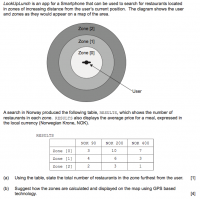IB Computer Science Year 2 Higher Level - August 30 2017 Lesson Notes: Difference between revisions
Mr. MacKenty (talk | contribs) |
Mr. MacKenty (talk | contribs) |
||
| Line 35: | Line 35: | ||
==[[File:target.png]] How am I being assessed today? == | ==[[File:target.png]] How am I being assessed today? == | ||
I will assess you formatively today, and make a professional judgement to what extent you understand our learning material. I will use observation, your written work, answers to questions, and contribution to class discussions as | I will assess you formatively today, and make a professional judgement to what extent you understand our learning material. I will use observation, your written work, answers to questions, and contribution to class discussions as data to make my decisions. I normally record my observations in a "evidence of learning" spreadsheet, which I will happily share with you privately if you so wish. I usually need a day or two notice. | ||
</td> | </td> | ||
Revision as of 09:52, 29 August 2017
|
|
|
|
||
|
|
|
|
||
- ↑ IB Diploma Programme Computer science guide (first examinations 2014). Cardiff, Wales, United Kingdom: International Baccalaureate Organization. January 2012.
